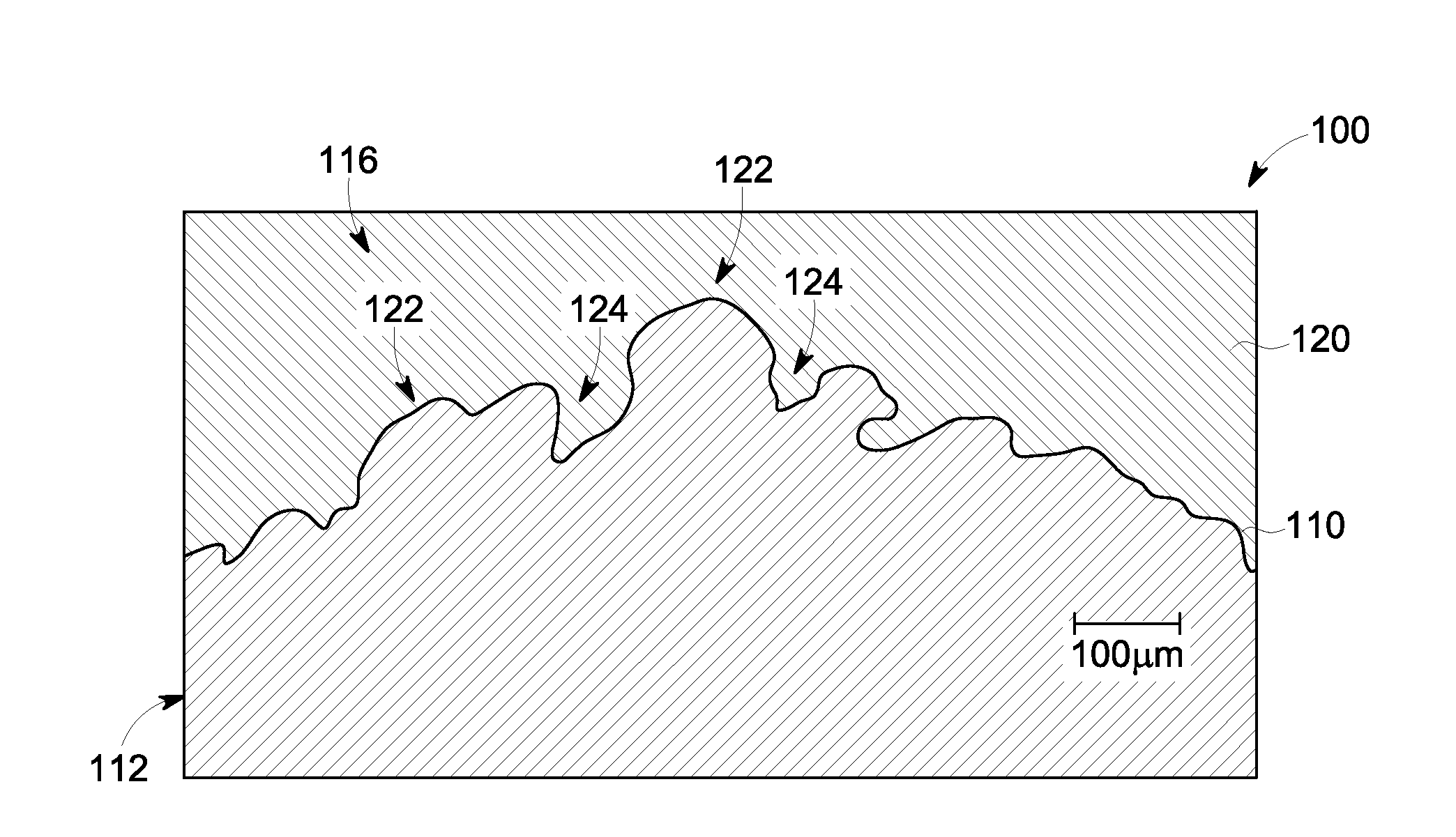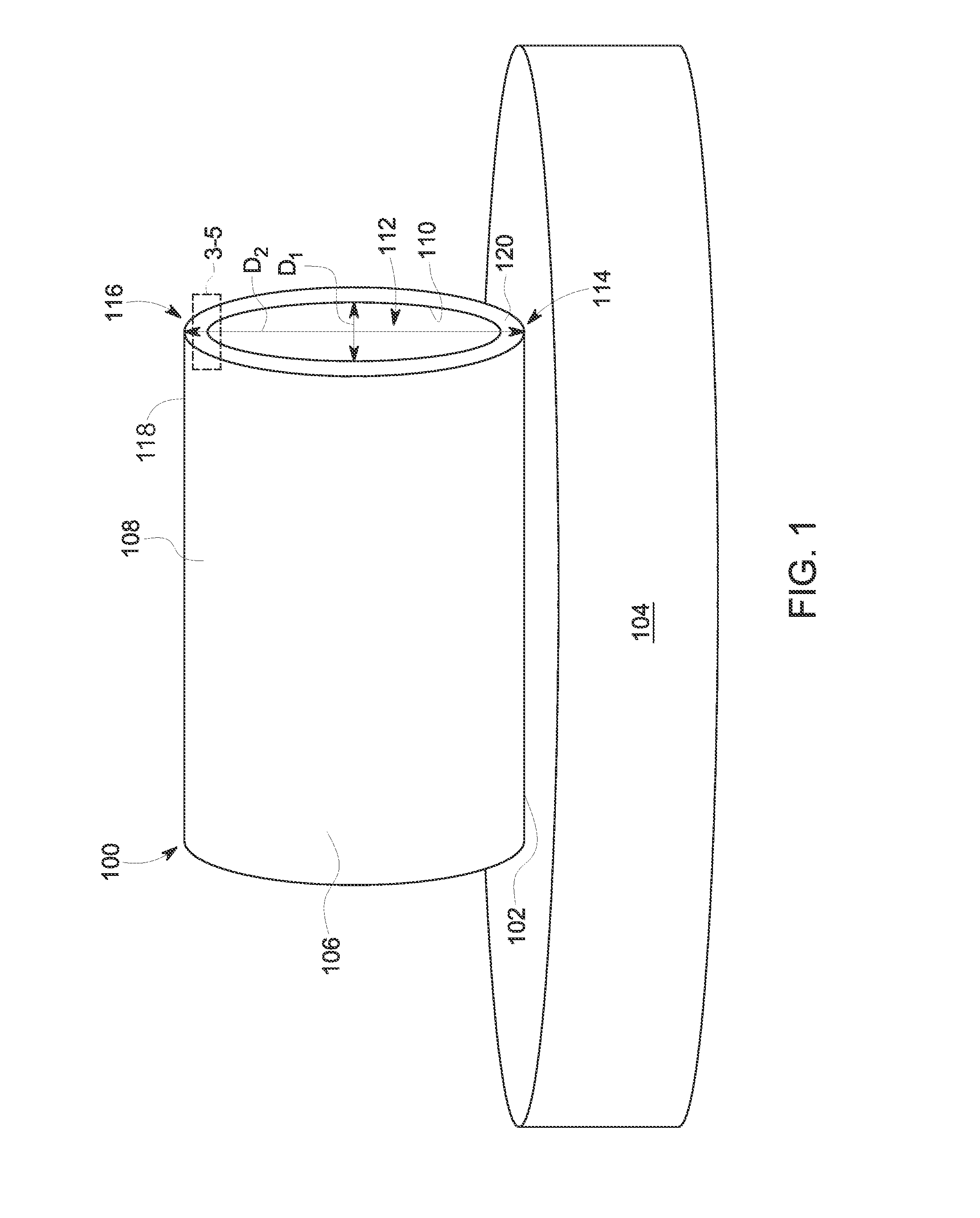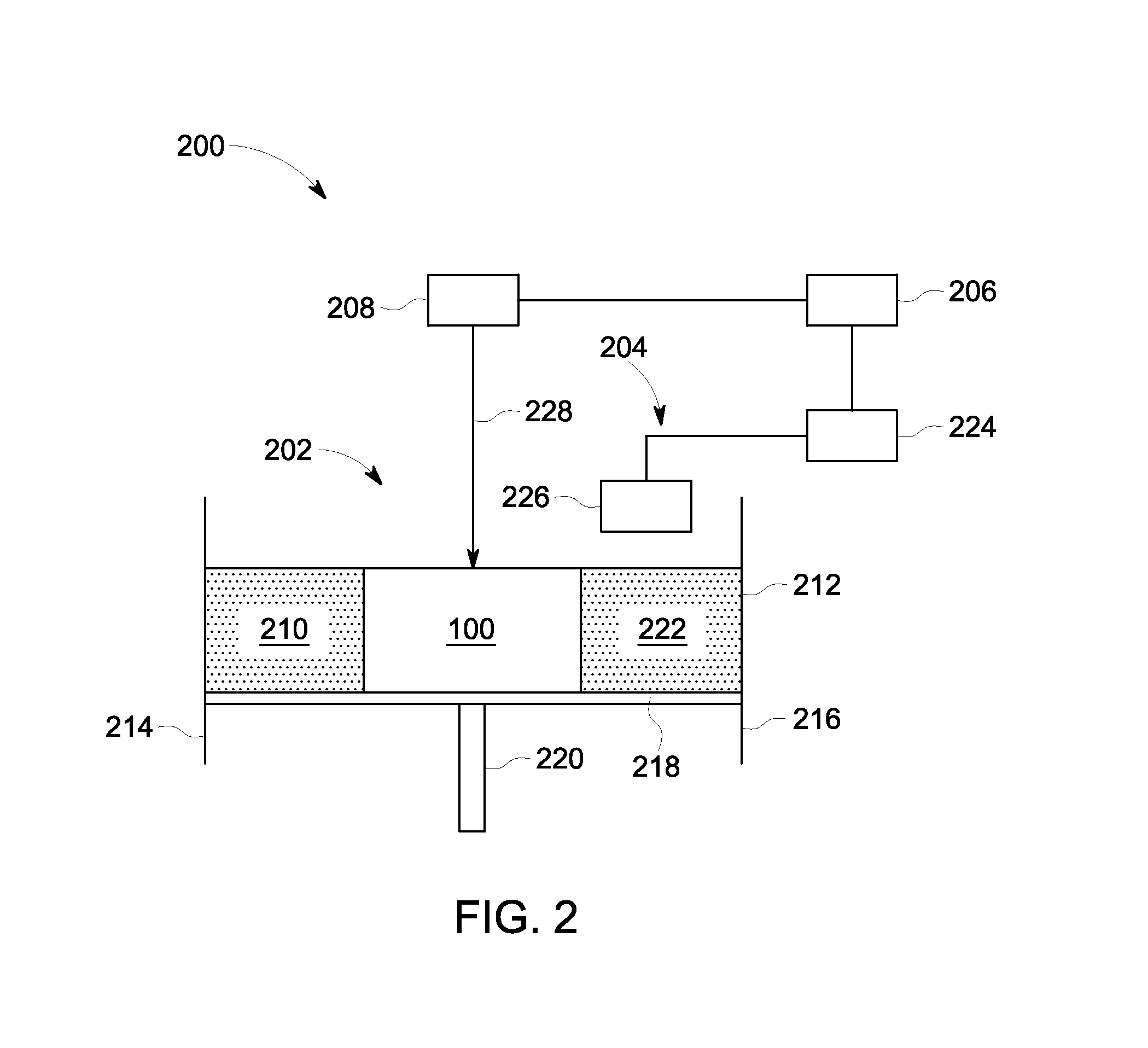Methods for manufacturing an additively manufactured fuel contacting component to facilitate reducing coke formation
a fuel contact and additive manufacturing technology, applied in the field of coatings, can solve the problems of limiting the usefulness affecting the efficiency of the fuel contact component, and the inability to endure long service exposures without accelerated wear, so as to facilitate the formation of cok
- Summary
- Abstract
- Description
- Claims
- Application Information
AI Technical Summary
Benefits of technology
Problems solved by technology
Method used
Image
Examples
Embodiment Construction
[0015]In the following specification and the claims, reference will be made to a number of terms, which shall be defined to have the following meanings.
[0016]The singular forms “a”, “an”, and “the” include plural references unless the context clearly dictates otherwise.
[0017]Approximating language, as used herein throughout the specification and claims, may be applied to modify any quantitative representation that could permissibly vary without resulting in a change in the basic function to which it is related. Accordingly, a value modified by a term or terms, such as “about” and “substantially”, are not to be limited to the precise value specified. In at least some instances, the approximating language may correspond to the precision of an instrument for measuring the value. Here and throughout the specification and claims, range limitations may be combined and / or interchanged, such ranges are identified and include all the sub-ranges contained therein unless context or language in...
PUM
| Property | Measurement | Unit |
|---|---|---|
| Temperature | aaaaa | aaaaa |
| Temperature | aaaaa | aaaaa |
| Temperature | aaaaa | aaaaa |
Abstract
Description
Claims
Application Information
 Login to View More
Login to View More - R&D
- Intellectual Property
- Life Sciences
- Materials
- Tech Scout
- Unparalleled Data Quality
- Higher Quality Content
- 60% Fewer Hallucinations
Browse by: Latest US Patents, China's latest patents, Technical Efficacy Thesaurus, Application Domain, Technology Topic, Popular Technical Reports.
© 2025 PatSnap. All rights reserved.Legal|Privacy policy|Modern Slavery Act Transparency Statement|Sitemap|About US| Contact US: help@patsnap.com



